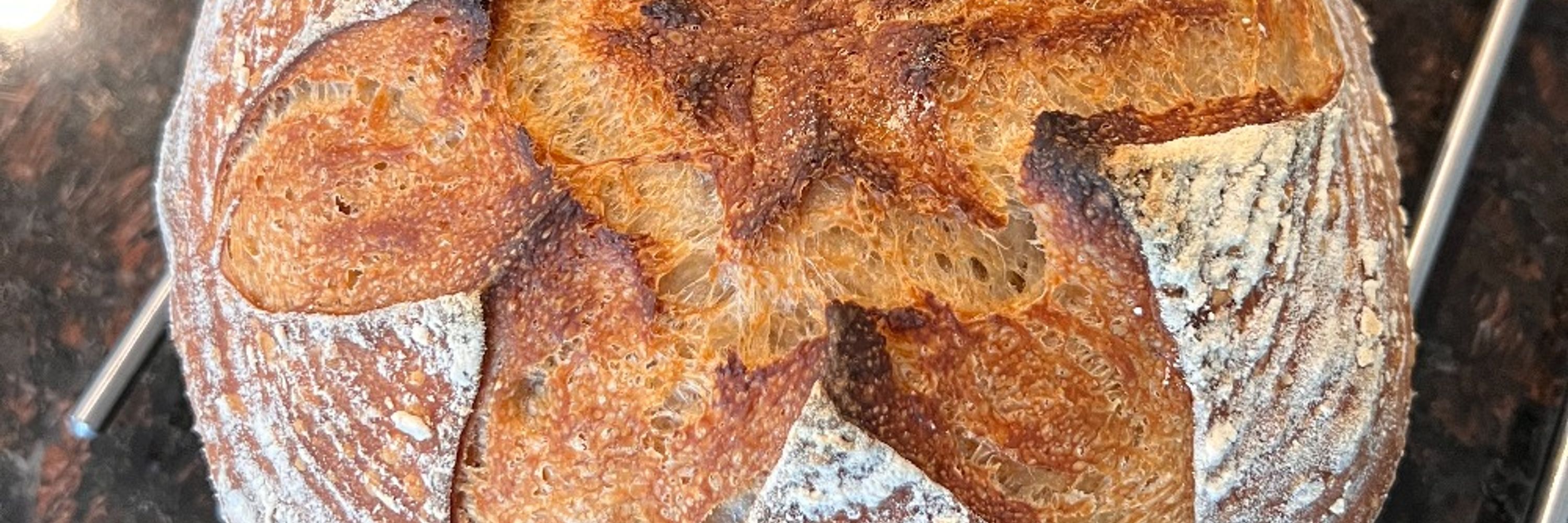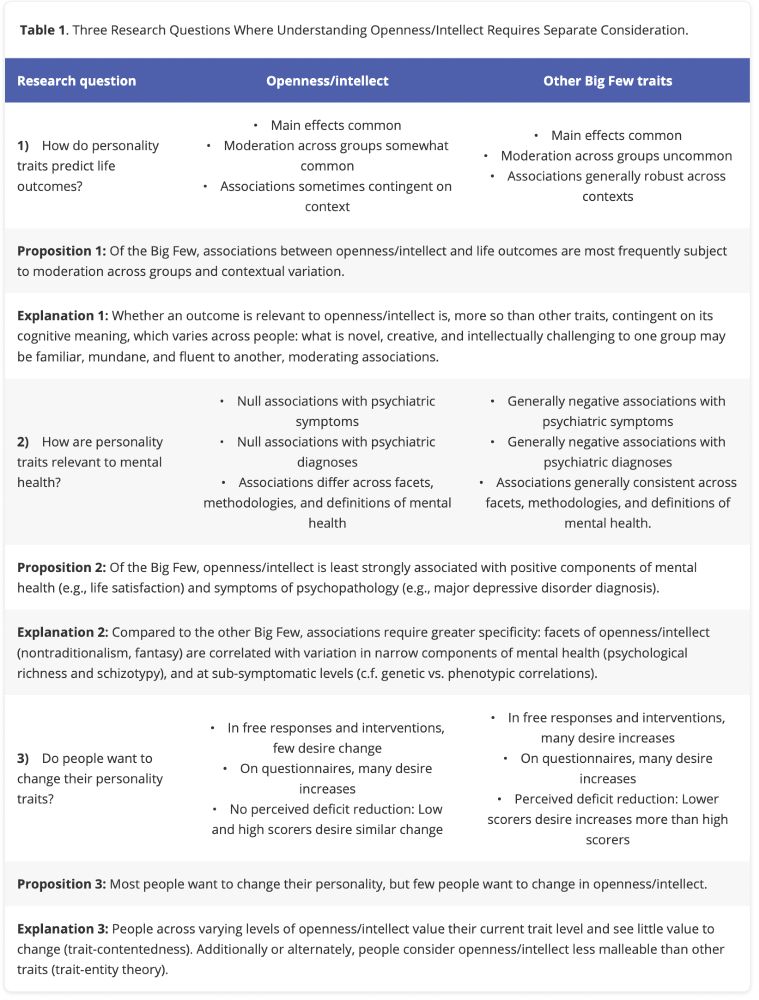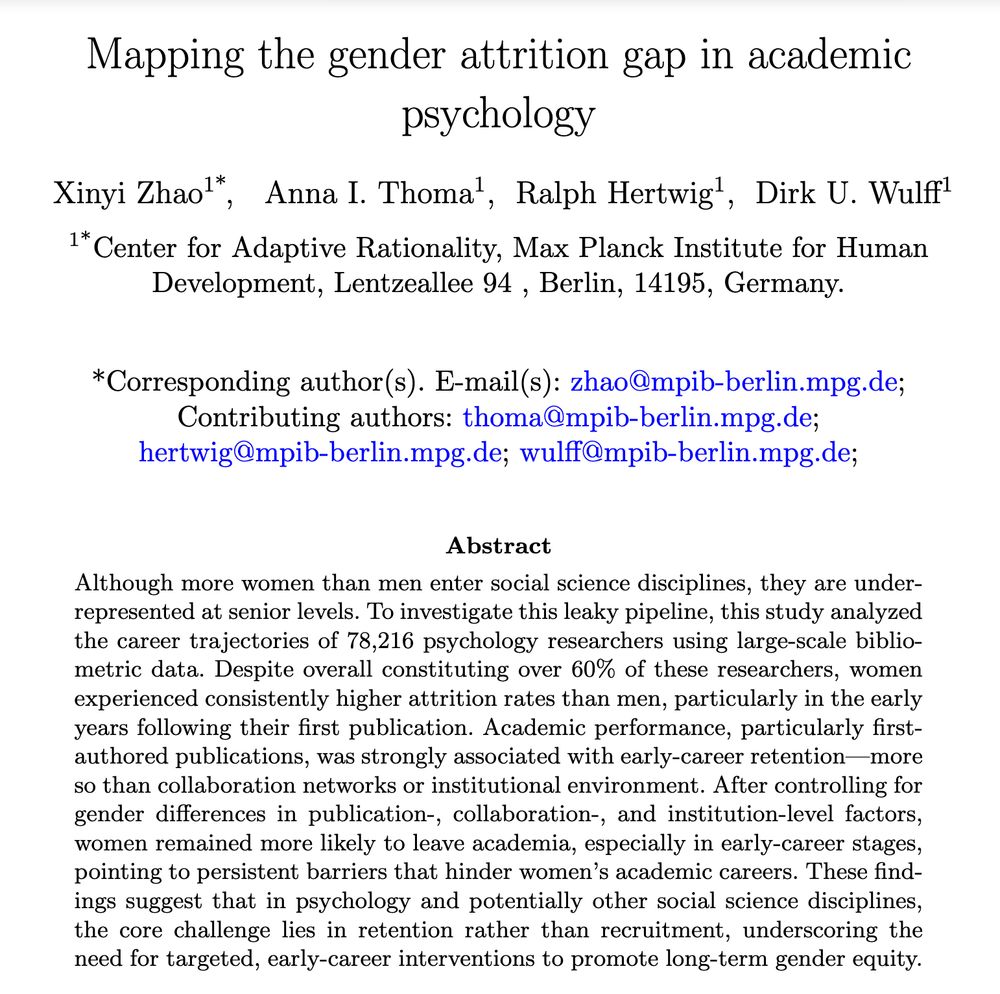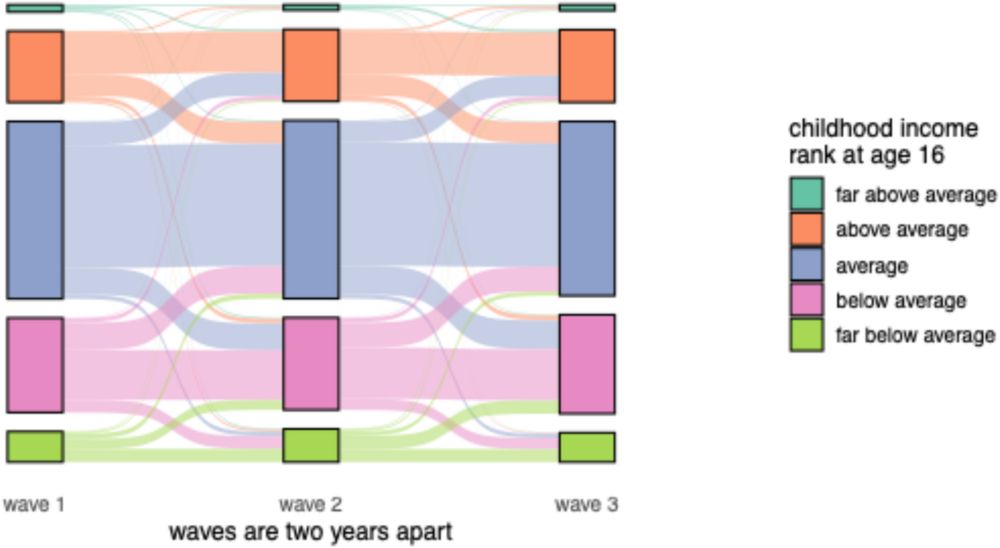
Brent W. Roberts
@bwroberts.bsky.social
Respirating carbon-based life form. Pit of despair dweller. Bread maker. Sometimes personality psychologist at the University of Illinois at Urbana-Champaign
Reposted by Brent W. Roberts
The Shifting 'Self' of Science's Self-Governing Capacity: Four Decades of Research Integrity Discussions in Science and Nature pubmed.ncbi.nlm.nih.gov/41199636/

November 10, 2025 at 5:51 PM
The Shifting 'Self' of Science's Self-Governing Capacity: Four Decades of Research Integrity Discussions in Science and Nature pubmed.ncbi.nlm.nih.gov/41199636/
Had a great day yesterday with the first annual Midwestern Personality Meeting held in our own Champaign/Urbana. H/T to @cavanvbonner.bsky.social, Muchen Xi, and Derek Simon for organizing. @chops310.bsky.social @rcfraley.bsky.social @jaime.phd @jessiesun.bsky.social @joshuajackson.bsky.social

November 10, 2025 at 1:37 AM
Had a great day yesterday with the first annual Midwestern Personality Meeting held in our own Champaign/Urbana. H/T to @cavanvbonner.bsky.social, Muchen Xi, and Derek Simon for organizing. @chops310.bsky.social @rcfraley.bsky.social @jaime.phd @jessiesun.bsky.social @joshuajackson.bsky.social
Reposted by Brent W. Roberts
Results from the most well-known dissonance experiment are mathematically impossible @steamtraen.eu
(To get the intuition behind this analysis, imagine that we take the mean of 10 Likert scale scores. The mean could be 4.20 but not 4.25)
mattiheino.com/2016/11/13/l...
(To get the intuition behind this analysis, imagine that we take the mean of 10 Likert scale scores. The mean could be 4.20 but not 4.25)
mattiheino.com/2016/11/13/l...

November 6, 2025 at 2:07 PM
Results from the most well-known dissonance experiment are mathematically impossible @steamtraen.eu
(To get the intuition behind this analysis, imagine that we take the mean of 10 Likert scale scores. The mean could be 4.20 but not 4.25)
mattiheino.com/2016/11/13/l...
(To get the intuition behind this analysis, imagine that we take the mean of 10 Likert scale scores. The mean could be 4.20 but not 4.25)
mattiheino.com/2016/11/13/l...
Reposted by Brent W. Roberts
Multilab replication study fails to find result in induced compliance paradigm, long seen as core evidence for the theory @vaidis.bsky.social

Sage Journals: Discover world-class research
Subscription and open access journals from Sage, the world's leading independent academic publisher.
journals.sagepub.com
November 6, 2025 at 2:09 PM
Multilab replication study fails to find result in induced compliance paradigm, long seen as core evidence for the theory @vaidis.bsky.social
Reposted by Brent W. Roberts
My Shiny app containing 3530 Open Science blog posts discussing the replication crisis is updated - you can now use the SEARCH box. I fixed it as my new PhD Julia wanted to know who had called open scientists 'Methodological Terrorists' :) shiny.ieis.tue.nl/open_science...
Open Science Blog Browser
Open Science Blog Browser
shiny.ieis.tue.nl
November 8, 2025 at 7:15 PM
My Shiny app containing 3530 Open Science blog posts discussing the replication crisis is updated - you can now use the SEARCH box. I fixed it as my new PhD Julia wanted to know who had called open scientists 'Methodological Terrorists' :) shiny.ieis.tue.nl/open_science...
Reposted by Brent W. Roberts
Out now at PSPR: our love letter to the personality trait of Openness!
Amber Thalmayer and I identify and (try to) explain the many ways that openness/intellect is the weirdest & WEIRDest of the Big Five. (Big improvements over the old preprint! thx reviewers)
journals.sagepub.com/eprint/HBGXT...
Amber Thalmayer and I identify and (try to) explain the many ways that openness/intellect is the weirdest & WEIRDest of the Big Five. (Big improvements over the old preprint! thx reviewers)
journals.sagepub.com/eprint/HBGXT...



November 7, 2025 at 2:49 PM
Out now at PSPR: our love letter to the personality trait of Openness!
Amber Thalmayer and I identify and (try to) explain the many ways that openness/intellect is the weirdest & WEIRDest of the Big Five. (Big improvements over the old preprint! thx reviewers)
journals.sagepub.com/eprint/HBGXT...
Amber Thalmayer and I identify and (try to) explain the many ways that openness/intellect is the weirdest & WEIRDest of the Big Five. (Big improvements over the old preprint! thx reviewers)
journals.sagepub.com/eprint/HBGXT...
Reposted by Brent W. Roberts
It takes a village to make moms feel bad for not having enough friends: www.theatlantic.com/family/2025/...

The Most Useless Piece of Parenting Advice
The problem with telling moms “It takes a village”
www.theatlantic.com
November 7, 2025 at 3:56 PM
It takes a village to make moms feel bad for not having enough friends: www.theatlantic.com/family/2025/...
Reposted by Brent W. Roberts
Ok, just wow. If the content of this article is right, this is depressing. We're slowly reaching the point where ~100% of what I was taught in Social Psych was either innocently wrong or plainly frauded
onlinelibrary.wiley.com/doi/abs/10.1...
onlinelibrary.wiley.com/doi/abs/10.1...

Debunking “When Prophecy Fails”
In 1954, Dorothy Martin predicted an apocalyptic flood and promised her followers rescue by flying saucers. When neither arrived, she recanted, her group dissolved, and efforts to proselytize ceased....
onlinelibrary.wiley.com
November 5, 2025 at 11:09 PM
Ok, just wow. If the content of this article is right, this is depressing. We're slowly reaching the point where ~100% of what I was taught in Social Psych was either innocently wrong or plainly frauded
onlinelibrary.wiley.com/doi/abs/10.1...
onlinelibrary.wiley.com/doi/abs/10.1...
Reposted by Brent W. Roberts
I’ve spent the last 8 years(!) working from the position that HiTOP relies too much on analyses of traditional diagnoses, baking in limitations of the DSM, and that we need to move to symptom-level analyses to fix it
It turns out that rebuilding HiTOP from the ground up doesn’t change much 💀
1/
It turns out that rebuilding HiTOP from the ground up doesn’t change much 💀
1/

November 4, 2025 at 8:27 PM
I’ve spent the last 8 years(!) working from the position that HiTOP relies too much on analyses of traditional diagnoses, baking in limitations of the DSM, and that we need to move to symptom-level analyses to fix it
It turns out that rebuilding HiTOP from the ground up doesn’t change much 💀
1/
It turns out that rebuilding HiTOP from the ground up doesn’t change much 💀
1/
Reposted by Brent W. Roberts
📣Hi #EconSky! I am on the job market! 📣
My JMP builds a 20-year panel showing an after-school care reform increased university grad. rates. 🎓
The key: moving children from home 🏠 to care centers 🧑🧒🧒, where peer interactions shaped preferences and beliefs — not skills🧮.
For more: sevinkaytan.com
My JMP builds a 20-year panel showing an after-school care reform increased university grad. rates. 🎓
The key: moving children from home 🏠 to care centers 🧑🧒🧒, where peer interactions shaped preferences and beliefs — not skills🧮.
For more: sevinkaytan.com

November 5, 2025 at 11:34 AM
📣Hi #EconSky! I am on the job market! 📣
My JMP builds a 20-year panel showing an after-school care reform increased university grad. rates. 🎓
The key: moving children from home 🏠 to care centers 🧑🧒🧒, where peer interactions shaped preferences and beliefs — not skills🧮.
For more: sevinkaytan.com
My JMP builds a 20-year panel showing an after-school care reform increased university grad. rates. 🎓
The key: moving children from home 🏠 to care centers 🧑🧒🧒, where peer interactions shaped preferences and beliefs — not skills🧮.
For more: sevinkaytan.com
Reposted by Brent W. Roberts
"only about 5% of the variance in personality can be
predicted from digital footprints, and personality‐tailored messages show negligible effects on behavior... When design and evaluation flaws are controlled, the combined end‐to‐end effectiveness of psychological targeting approaches zero."
predicted from digital footprints, and personality‐tailored messages show negligible effects on behavior... When design and evaluation flaws are controlled, the combined end‐to‐end effectiveness of psychological targeting approaches zero."

The (In)Effectiveness of Psychological Targeting: A Meta‐Analytic Review
The use of psychological targeting—employing machine learning to predict consumer personality from digital footprints and subsequently tailoring persuasive messages—has emerged as a controversial yet...
onlinelibrary.wiley.com
October 31, 2025 at 2:55 PM
"only about 5% of the variance in personality can be
predicted from digital footprints, and personality‐tailored messages show negligible effects on behavior... When design and evaluation flaws are controlled, the combined end‐to‐end effectiveness of psychological targeting approaches zero."
predicted from digital footprints, and personality‐tailored messages show negligible effects on behavior... When design and evaluation flaws are controlled, the combined end‐to‐end effectiveness of psychological targeting approaches zero."
Reposted by Brent W. Roberts
There still seems to be a lot of confusion about significance testing in psych. No, p-values *don’t* become useless at large N. This flawed point also used to be framed as "too much power". But power isn't the problem – it's 1) unbalanced error rates and 2) the (lack of a) SESOI. 1/ >
But here's, the thing, p values and significance become useless at such large sample sizes. When you're dividing the coefficient by the SE and the sample size is in the tens of thousands, EVERYTHING IS SIGNIFICANT. All you're testing is whether the coefficient is different than zero.
October 31, 2025 at 8:13 AM
There still seems to be a lot of confusion about significance testing in psych. No, p-values *don’t* become useless at large N. This flawed point also used to be framed as "too much power". But power isn't the problem – it's 1) unbalanced error rates and 2) the (lack of a) SESOI. 1/ >
Reposted by Brent W. Roberts
New release of PowerLMM.js! Browser-based power analysis for longitudinal models with dropout.
Now includes:
- Power analysis summary report
- Reproducible & shareable configs (URL/JSON)
- Calculations validated against R
- Hypothesis region visualization
powerlmmjs.rpsychologist.com
Now includes:
- Power analysis summary report
- Reproducible & shareable configs (URL/JSON)
- Calculations validated against R
- Hypothesis region visualization
powerlmmjs.rpsychologist.com

October 28, 2025 at 2:02 PM
New release of PowerLMM.js! Browser-based power analysis for longitudinal models with dropout.
Now includes:
- Power analysis summary report
- Reproducible & shareable configs (URL/JSON)
- Calculations validated against R
- Hypothesis region visualization
powerlmmjs.rpsychologist.com
Now includes:
- Power analysis summary report
- Reproducible & shareable configs (URL/JSON)
- Calculations validated against R
- Hypothesis region visualization
powerlmmjs.rpsychologist.com
Reposted by Brent W. Roberts
Reposted by Brent W. Roberts
Interesting new special issue in Psychological Assessment.
Edited by Kristin Naragon-Gainey and @kstanton.bsky.social
Here's their overview paper: psycnet.apa.org/record/2026-...
And here's our contribution, which will win us no friends:
psycnet.apa.org/record/2026-...
Edited by Kristin Naragon-Gainey and @kstanton.bsky.social
Here's their overview paper: psycnet.apa.org/record/2026-...
And here's our contribution, which will win us no friends:
psycnet.apa.org/record/2026-...
October 24, 2025 at 4:00 PM
Interesting new special issue in Psychological Assessment.
Edited by Kristin Naragon-Gainey and @kstanton.bsky.social
Here's their overview paper: psycnet.apa.org/record/2026-...
And here's our contribution, which will win us no friends:
psycnet.apa.org/record/2026-...
Edited by Kristin Naragon-Gainey and @kstanton.bsky.social
Here's their overview paper: psycnet.apa.org/record/2026-...
And here's our contribution, which will win us no friends:
psycnet.apa.org/record/2026-...
Reposted by Brent W. Roberts
A massive study on the effects of social class tested 35 hypotheses in 4 countries (N = 33,536)
Only 50% of findings replicated
Hypotheses based on differences between social class contexts in terms of constraints, uncertainty & status were supported:
www.nature.com/articles/s41...
Only 50% of findings replicated
Hypotheses based on differences between social class contexts in terms of constraints, uncertainty & status were supported:
www.nature.com/articles/s41...

October 24, 2025 at 3:21 PM
A massive study on the effects of social class tested 35 hypotheses in 4 countries (N = 33,536)
Only 50% of findings replicated
Hypotheses based on differences between social class contexts in terms of constraints, uncertainty & status were supported:
www.nature.com/articles/s41...
Only 50% of findings replicated
Hypotheses based on differences between social class contexts in terms of constraints, uncertainty & status were supported:
www.nature.com/articles/s41...
Reposted by Brent W. Roberts
New post on selective scepticism, and that time Galton set out to test whether prayer was effective: kucharski.substack.com/p/selective-...

Selective scepticism
From historial prayers to modern social media, the temptation is to cherry-pick evidence standards
kucharski.substack.com
October 23, 2025 at 8:35 AM
New post on selective scepticism, and that time Galton set out to test whether prayer was effective: kucharski.substack.com/p/selective-...
Has conscientiousness really been in a free fall since 2014? A question that made us blog again: Has conscientiousness really been in a free fall since 2014?*
floggingpvalues.blog/2025/10/22/h...
floggingpvalues.blog/2025/10/22/h...

Has conscientiousness really been in a free fall since 2014?*
Brent W. RobertsA.J. WrightLena RoemerCavan Bonner Recently Burn-Murdoch reported in the Financial Times (FT) that since 2014 conscientiousness was in a “free fall” in younger p…
floggingpvalues.blog
October 22, 2025 at 4:00 PM
Has conscientiousness really been in a free fall since 2014? A question that made us blog again: Has conscientiousness really been in a free fall since 2014?*
floggingpvalues.blog/2025/10/22/h...
floggingpvalues.blog/2025/10/22/h...
Reposted by Brent W. Roberts
Correction for multiple comparisons should be ubiquitous www.nature.com/articles/s41... 👍👏

Correction for multiple comparisons should be ubiquitous - Nature Human Behaviour
Nature Human Behaviour - Correction for multiple comparisons should be ubiquitous
www.nature.com
October 18, 2025 at 10:00 AM
Correction for multiple comparisons should be ubiquitous www.nature.com/articles/s41... 👍👏
Reposted by Brent W. Roberts
🚨 New preprint 🚨
Analyzing the academic trajectories of 78,216 psychology researchers, we demonstrate a persistent gender attrition gap, with women psychologists dropping out of academia at consistently higher rates than men psychologists.
Preprint: arxiv.org/pdf/2510.13273
Analyzing the academic trajectories of 78,216 psychology researchers, we demonstrate a persistent gender attrition gap, with women psychologists dropping out of academia at consistently higher rates than men psychologists.
Preprint: arxiv.org/pdf/2510.13273

October 16, 2025 at 9:38 AM
🚨 New preprint 🚨
Analyzing the academic trajectories of 78,216 psychology researchers, we demonstrate a persistent gender attrition gap, with women psychologists dropping out of academia at consistently higher rates than men psychologists.
Preprint: arxiv.org/pdf/2510.13273
Analyzing the academic trajectories of 78,216 psychology researchers, we demonstrate a persistent gender attrition gap, with women psychologists dropping out of academia at consistently higher rates than men psychologists.
Preprint: arxiv.org/pdf/2510.13273
Reposted by Brent W. Roberts
Finally, someone has solved a real problem with AI! No more having to take a paper in the format for a journal that rejected you, and reformat it for a new journal. Well done!! formatmypaper.com

October 15, 2025 at 6:33 AM
Finally, someone has solved a real problem with AI! No more having to take a paper in the format for a journal that rejected you, and reformat it for a new journal. Well done!! formatmypaper.com
Reposted by Brent W. Roberts
📚 Core principles of responsible generative AI usage in research link.springer.com/article/10.1...

Core principles of responsible generative AI usage in research - AI and Ethics
In a rapidly evolving Generative Artificial Intelligence (GenAI) landscape, researchers, policymakers, and publishers have to continuously redefine responsible research practices. To ensure guidance o...
link.springer.com
October 16, 2025 at 7:28 AM
📚 Core principles of responsible generative AI usage in research link.springer.com/article/10.1...
Reposted by Brent W. Roberts
The GSS asked the same people about their childhood income rank three different times. 56% changed their answer, even though what was trying to be measured couldn’t change! We dig into this in a new article at @socialindicators.bsky.social.
doi.org/10.1007/s112...
🧵👇 (1/5)
doi.org/10.1007/s112...
🧵👇 (1/5)

Growing up Different(ly than Last Time We Asked): Social Status and Changing Reports of Childhood Income Rank - Social Indicators Research
How we remember our past can be shaped by the realities of our present. This study examines how changes to present circumstances influence retrospective reports of family income rank at age 16. While retrospective survey data can be used to assess the long-term effects of childhood conditions, present-day circumstances may “anchor” memories, causing shifts in how individuals recall and report past experiences. Using panel data from the 2006–2014 General Social Surveys (8,602 observations from 2,883 individuals in the United States), we analyze how changes in objective and subjective indicators of current social status—income, financial satisfaction, and perceived income relative to others—are associated with changes in reports of childhood income rank, and how this varies by sex and race/ethnicity. Fixed-effects models reveal no significant association between changes in income and in childhood income rank. However, changes in subjective measures of social status show contrasting effects, as increases in current financial satisfaction are associated with decreases in childhood income rank, but increases in current perceived relative income are associated with increases in childhood income rank. We argue these opposing effects follow from theories of anchoring in recall bias. We further find these effects are stronger among males but are consistent across racial/ethnic groups. This demographic heterogeneity suggests that recall bias is not evenly distributed across the population and has important implications for how different groups perceive their own pasts. Our findings further highlight the malleability of retrospective perceptions and their sensitivity to current social conditions, offering methodological insights into survey reliability and recall bias.
doi.org
October 10, 2025 at 2:05 PM
The GSS asked the same people about their childhood income rank three different times. 56% changed their answer, even though what was trying to be measured couldn’t change! We dig into this in a new article at @socialindicators.bsky.social.
doi.org/10.1007/s112...
🧵👇 (1/5)
doi.org/10.1007/s112...
🧵👇 (1/5)
Reposted by Brent W. Roberts
New blog post!
Let's say you have two measures meant to capture the same confounder. They're highly correlated. Can you still proceed with your regression analysis?
(I admit, the title is a bit of a spoiler)
www.the100.ci/2025/10/13/i...
Let's say you have two measures meant to capture the same confounder. They're highly correlated. Can you still proceed with your regression analysis?
(I admit, the title is a bit of a spoiler)
www.the100.ci/2025/10/13/i...

If you have two measures of the same confounder, you can just include both of them in your regression model
Sometimes, researchers worry about multicollinearity in situations where it’s actually a non-issue. Here’s one such scenario.
Imagine a situation where you are interested in the effect of X on Y (X...
www.the100.ci
October 13, 2025 at 1:14 PM
New blog post!
Let's say you have two measures meant to capture the same confounder. They're highly correlated. Can you still proceed with your regression analysis?
(I admit, the title is a bit of a spoiler)
www.the100.ci/2025/10/13/i...
Let's say you have two measures meant to capture the same confounder. They're highly correlated. Can you still proceed with your regression analysis?
(I admit, the title is a bit of a spoiler)
www.the100.ci/2025/10/13/i...
Reposted by Brent W. Roberts
Research funders urged to drive culture shift on negative results.
Reform needed to improve trust in science, patient care and training of AI, advocates say.
www.researchprofessionalnews.com/rr-news-worl...
Reform needed to improve trust in science, patient care and training of AI, advocates say.
www.researchprofessionalnews.com/rr-news-worl...

October 13, 2025 at 7:51 AM
Research funders urged to drive culture shift on negative results.
Reform needed to improve trust in science, patient care and training of AI, advocates say.
www.researchprofessionalnews.com/rr-news-worl...
Reform needed to improve trust in science, patient care and training of AI, advocates say.
www.researchprofessionalnews.com/rr-news-worl...

